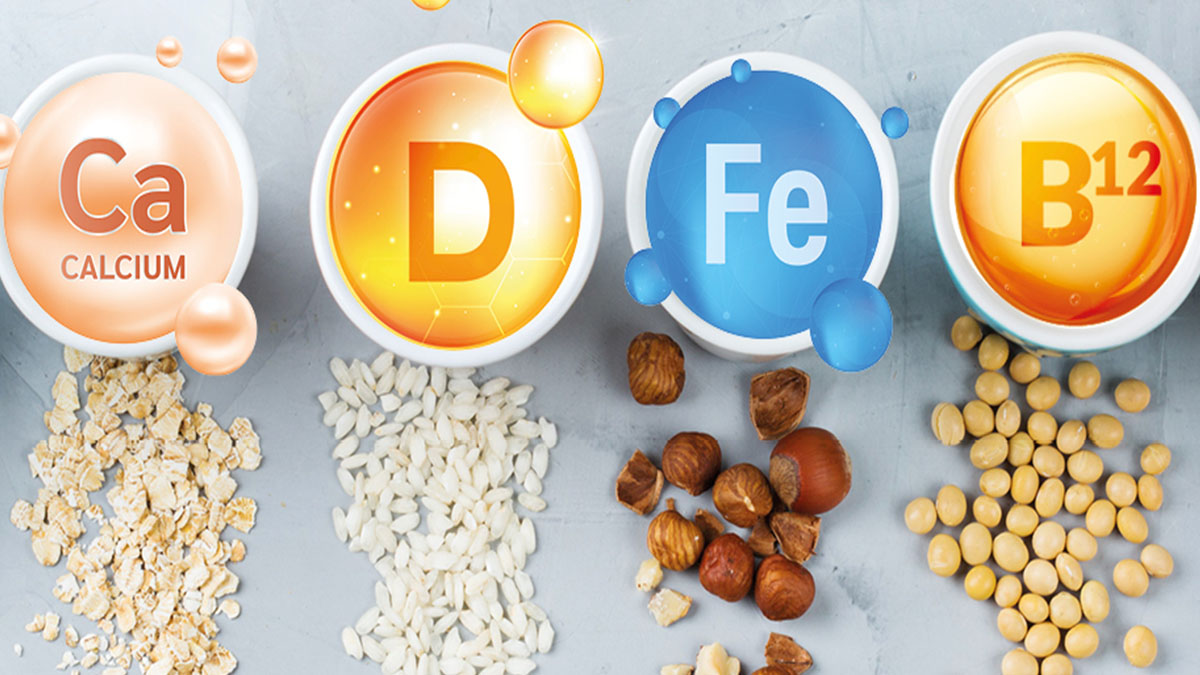
Adopting a vegan diet can offer numerous health benefits, including reduced risk of chronic diseases and improved overall well-being. However, ensuring you receive adequate vitamins and minerals is crucial for maintaining optimal health on a vegan diet. This guide will highlight the essential nutrients you need, sources to include in your diet, and tips for meeting your nutritional needs as a vegan.
1. Understanding Vegan Nutrition
**1.1. What is a Vegan Diet?
- Definition: A vegan diet excludes all animal products, including meat, dairy, eggs, and honey. It focuses on plant-based foods such as fruits, vegetables, grains, legumes, nuts, and seeds.
- Nutritional Focus: While a vegan diet can be rich in vitamins and minerals, careful planning is required to ensure all essential nutrients are adequately consumed.
**1.2. Common Nutritional Concerns
- Nutrient Deficiencies: Vegan diets may lack certain vitamins and minerals typically found in animal products. Awareness and planning are necessary to avoid deficiencies.
2. Essential Vitamins and Minerals for Vegans
**2.1. Vitamin B12
- Role: Vital for nerve function, red blood cell formation, and DNA synthesis.
- Sources: Fortified plant-based milk, nutritional yeast, fortified cereals, and B12 supplements.
- Tip: Regularly monitor B12 levels and consider supplementation, as this vitamin is not naturally present in plant foods.
**2.2. Vitamin D
- Role: Supports bone health, immune function, and overall well-being.
- Sources: Fortified plant-based milk, fortified orange juice, mushrooms exposed to sunlight, and Vitamin D supplements (D2 or vegan D3).
- Tip: Consider a supplement, especially during the winter months or if you have limited sun exposure.
**2.3. Iron
- Role: Essential for oxygen transport in the blood and energy production.
- Sources: Lentils, chickpeas, tofu, quinoa, fortified cereals, spinach, and pumpkin seeds.
- Tip: Combine iron-rich foods with vitamin C sources (e.g., citrus fruits, bell peppers) to enhance iron absorption.
**2.4. Calcium
- Role: Important for bone health, muscle function, and nerve signaling.
- Sources: Fortified plant-based milk, tofu made with calcium sulfate, almonds, chia seeds, broccoli, and kale.
- Tip: Ensure adequate intake through fortified foods or supplements if necessary.
**2.5. Omega-3 Fatty Acids
- Role: Supports heart health, brain function, and reduces inflammation.
- Sources: Flaxseeds, chia seeds, hemp seeds, walnuts, and algae-based supplements.
- Tip: Incorporate flaxseed oil or algae supplements to ensure adequate omega-3 intake.
**2.6. Zinc
- Role: Supports immune function, protein synthesis, and wound healing.
- Sources: Pumpkin seeds, lentils, chickpeas, quinoa, nuts, and fortified cereals.
- Tip: Soaking or sprouting seeds and legumes can improve zinc absorption.
**2.7. Iodine
- Role: Essential for thyroid function and hormone regulation.
- Sources: Sea vegetables (e.g., kelp, nori), iodized salt, and some multivitamins.
- Tip: Use iodized salt in moderation to meet iodine needs, especially if you do not consume sea vegetables regularly.
3. Tips for Meeting Nutritional Needs on a Vegan Diet
**3.1. Balanced Meal Planning
- Diverse Foods: Include a variety of fruits, vegetables, whole grains, legumes, nuts, and seeds to cover a broad spectrum of nutrients.
- Fortified Foods: Choose fortified plant-based products to help meet your nutritional requirements.
**3.2. Regular Monitoring
- Blood Tests: Regularly check levels of critical nutrients such as B12, iron, and vitamin D through blood tests.
- Adjustments: Adjust your diet or supplements based on blood test results and health needs.
**3.3. Consultation with Professionals
- Dietitian: Consult a registered dietitian or nutritionist with experience in vegan nutrition for personalized guidance and to address any specific concerns.
- Supplementation: Discuss appropriate supplements with a healthcare provider to ensure you meet your nutrient needs.
4. Delicious Vegan Recipes to Boost Nutrient Intake
**4.1. Chickpea and Spinach Curry
- Ingredients: Chickpeas, spinach, coconut milk, tomatoes, onions, garlic, ginger, curry spices.
- Instructions: Sauté onions, garlic, and ginger. Add spices and tomatoes, then stir in coconut milk and chickpeas. Simmer and add spinach until wilted.
- Benefits: Rich in iron, calcium, and protein, this dish supports overall health and energy levels.
**4.2. Flaxseed and Berry Smoothie
- Ingredients: Flaxseeds, mixed berries, banana, spinach, almond milk.
- Instructions: Blend all ingredients until smooth. Add more almond milk for desired consistency.
- Benefits: Provides omega-3 fatty acids, vitamins, and minerals in a refreshing smoothie.
**4.3. Quinoa and Black Bean Salad
- Ingredients: Quinoa, black beans, corn, cherry tomatoes, avocado, lime juice, cilantro.
- Instructions: Combine cooked quinoa with black beans, corn, and chopped vegetables. Toss with lime juice and cilantro.
- Benefits: High in protein, iron, and healthy fats, this salad is nutrient-dense and satisfying.
Conclusion
Maintaining a vegan diet requires attention to essential vitamins and minerals to ensure overall health and well-being. By incorporating a diverse range of plant-based foods, fortified products, and supplements as needed, you can effectively meet your nutritional needs while enjoying a varied and delicious diet. With careful planning and awareness, a vegan diet can be both fulfilling and nutritionally complete.
